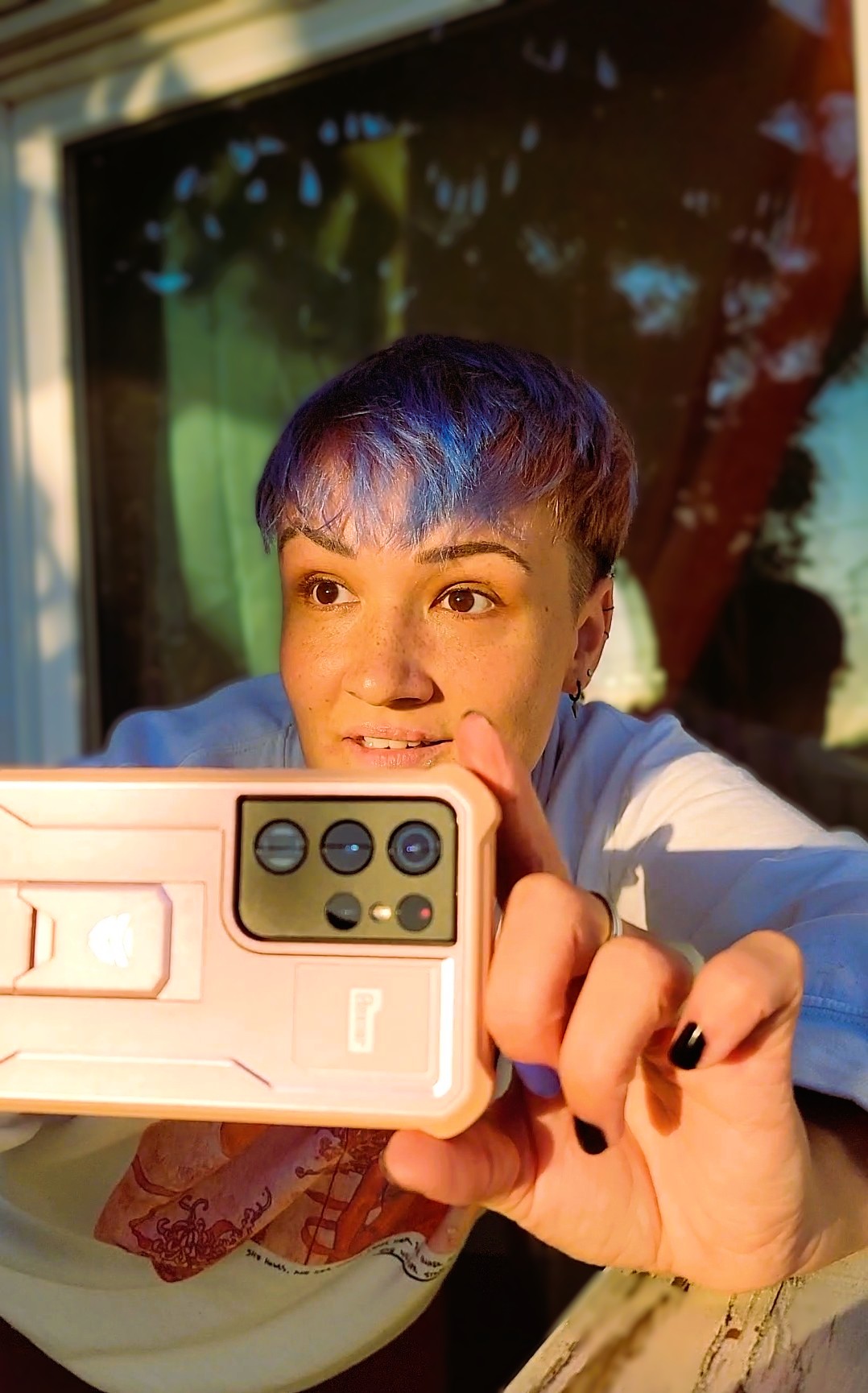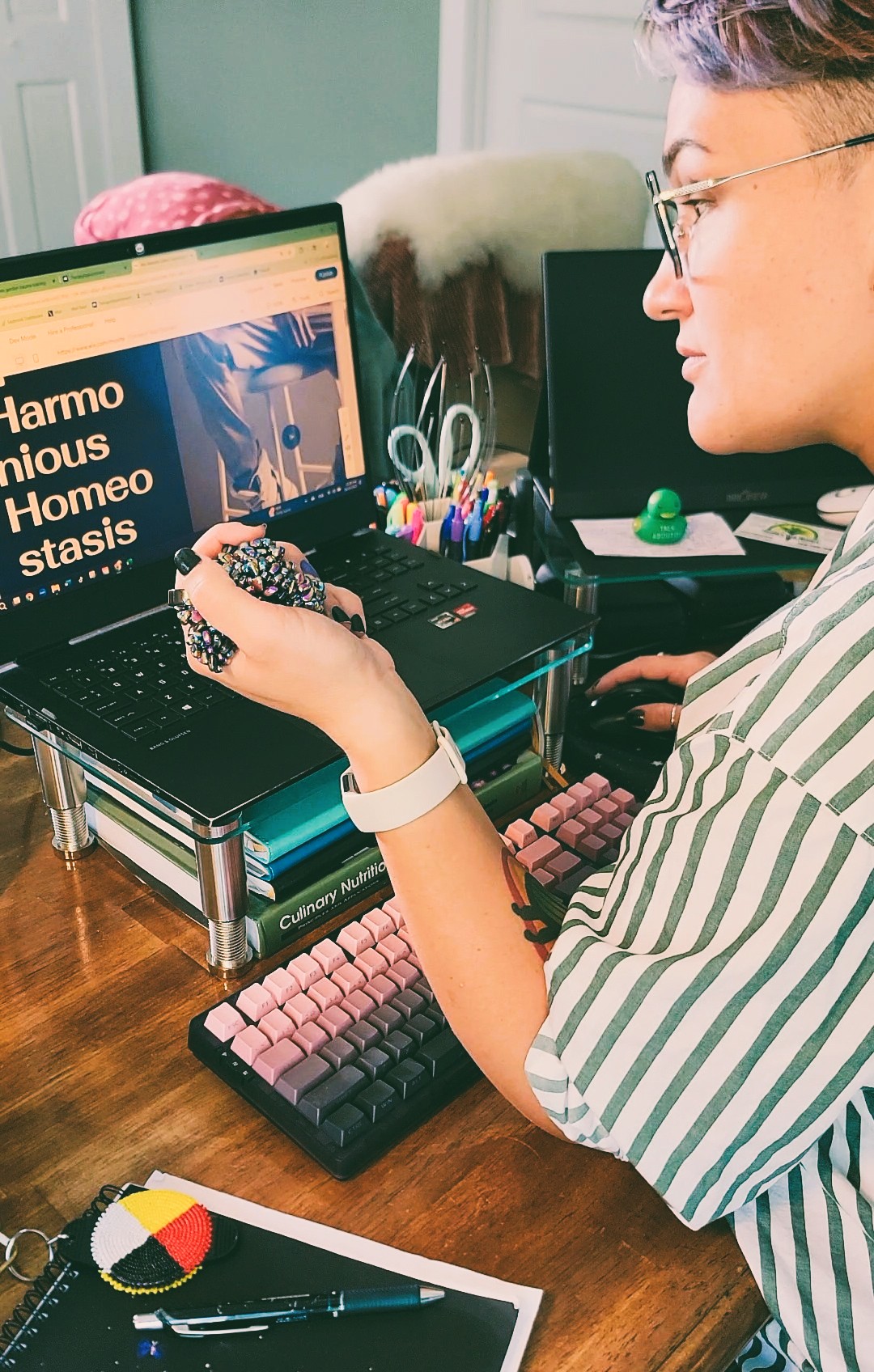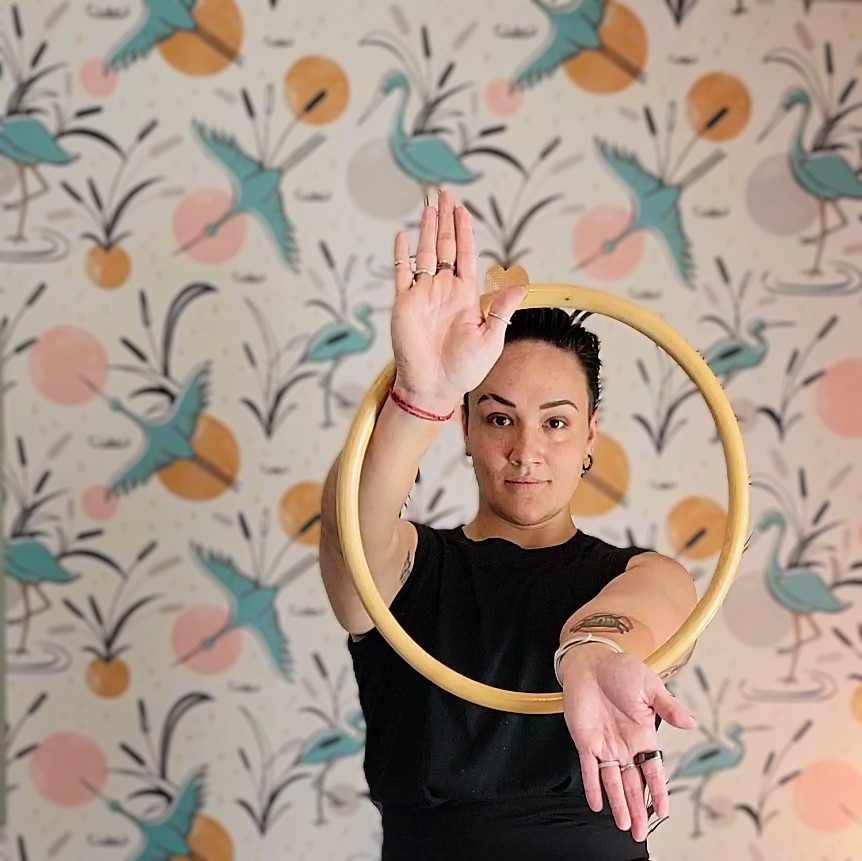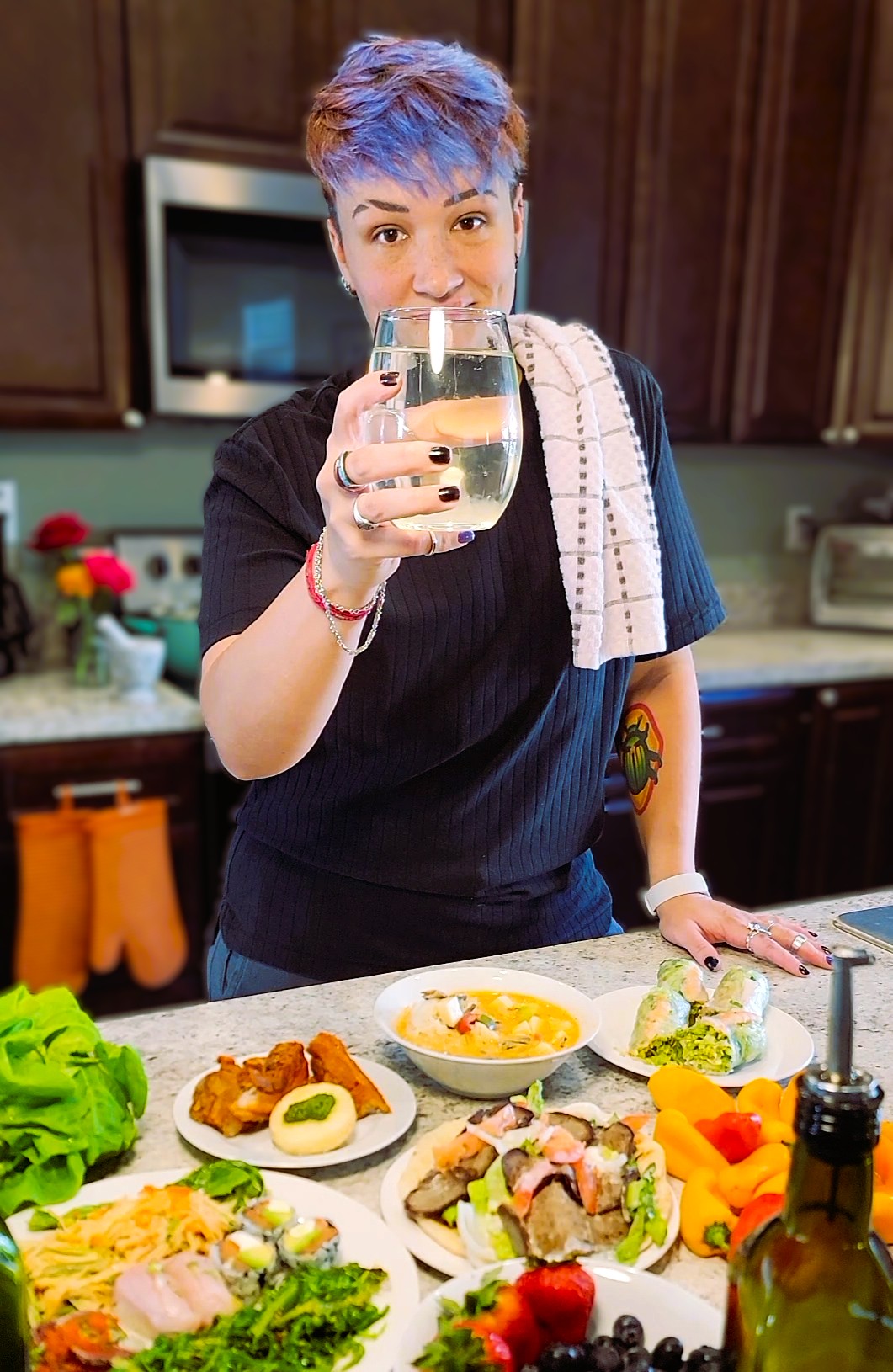We recently connected with Jennifer L X Sare and have shared our conversation below.
Jennifer L, thanks for taking the time to share your stories with us today Was there a defining moment in your professional career? A moment that changed the trajectory of your career?
There have been ongoing defining moments throughout my career. The more I learn, the more I see, the more I want to grow. As an anthropologist and nutritionist with a background in philosophy and kinesiology, I see the human experience as multidimensional and interconnected. The majority of my defining moments have been seeing others unnecessarily struggling through their experience and just needing someone to be there with them through it. This did not always transfer to the same compassion for myself. At least, that was a deeply rooted part of my human experience that ran counter to my expertise for many years. I finally began to use autoethnographic cinematography methods to explore myself as a subject rather than just the subject matter expert. Through this process, I have found a deeper connection with my clients and students and the ways in which we all heal and grow similarly and differently all at once. Human connection and creativity, whatever that means for each individual, are where we bond and thrive. Choosing to create an autoethnographic documentary for my dissertation in anthropology, rather than the expected “publish or perish” trajectory, opened so many more opportunities in how I approach sessions with my nutrition clients, which improved my educational approaches as well. Many times, we divide art and science when, really, it is a balance of the two that we need. More importantly, we need each other, and we need space and safety to be ourselves. Finding those answers within me as a human, rather than through research as a scientist, has given the internal creativity places to glow and grow through the knowledge being shared with others. Each person, in some way or another, that I have worked with through the years was foundational in my pivot from traditional academia to a multimodal opportunity to create accessibility, inspiration, and community. We need each other, and we need ourselves.

As always, we appreciate you sharing your insights and we’ve got a few more questions for you, but before we get to all of that can you take a minute to introduce yourself and give our readers some of your back background and context?
My name is Jennifer, and I am a neurodivergent polymath. I work as an anthropologist, nutritionist, and social media manager. I like to use my background in osteology and human movement to provide additional context to applied anthropological considerations and medical nutrition therapies. My background in philosophy not only provides an ethical context, it also helps to understand some of the underlying beliefs that dictate much of our interactions with ourselves, food, and movement, which contribute to our overall well-being. Given that our well-being is our existence, and our existence is our well-being, I not only consider the symptoms, but the experience, the history, and the sociocultural impacts and implications as well.
I am a lifelong athlete, a martial artist, and a USMC veteran. Professionally, I began as a personal trainer and group exercise instructor, moved into nutrition counseling and health coaching, and eventually into management, community engagement, and social media. I have worked within and researched the wellness industrial complex for 15 years from many perspectives. My anthropological thesis focuses on human biological variation, body composition, medical ethics, and environmental etiologies. My dissertation explores the impacts of the wellness industrial complex, especially on systemically disparaged communities. This overlaps with my focus both in coursework and clinical practice as an integrative and functional nutritionist who specializes in psychosomatics and culinary nutrition.
The clients that I work with the most are those with eating disorders and disordered eating habits. However, my career has been one of specializing in specializations, and more often than not, I am where people who have been dismissed by everyone else end up. No matter the condition, I always collaborate with my clients to ensure autonomy and foster embodied empowerment. We discuss cravings, thoughts about food and self, nutrient needs and balance, and will always take a personalized approach. Feeling nourished mind, body, and soul is an individual journey that gets better when shared with the right people. I offer 1:1 virtual sessions in medical nutrition therapies, health coaching, and nutrition education as a Certified Nutrition Specialist Candidate (CNS(c)) under the supervision of Clinician’s Incubator while obtaining clinical hours for credentialing and licensure.
This spiderweb of interdisciplinary overlap and my natural capacity for empathy and compassion is what sets me apart. I am not here to give you “the” answers; I am here to help you find your answers. My expertise means nothing without your experience. Many people who come to me often assume that judgment comes along with the sessions, but if I am busy judging you, who is doing my job? I prefer collaborative curiosity. We will talk about culture, helpful vs harmful media, medical conditions, nutritional needs, what cooking does or does not look like for you, and whatever else plays a role in your life specifically. Most importantly, I will never tell you to “move more and eat less”, that is for practitioners who don’t understand the biochemistry or sociocultural value of food. Your weight isn’t your worth, and profit over people is an unhelpful model. We can do calculations, or we can regulate together. This isn’t a one-size-fits-all kind of thing because you are a multidimensional human being who deserves the time and space to be just that.
Let’s talk about resilience next – do you have a story you can share with us?
Upon leaving the military, I was about a decade deep into eating disorders, and my mind, body, and soul were falling apart. Logically, I knew why and what to do. Emotionally, I didn’t believe I deserved any better. I began to study and pushed through the discomfort because at least I could help others, not only personally, but professionally. Through this process, I found my own worth as well. I found my reason and resilience to be the person I never had. This is not unique to me, which is encouraging to know that many others have found their reasons and resilience in times and spaces when we should never have had to be resilient. No matter what it is, finding that spark that keeps us pushing forward is key. I could not come up with a better reason to keep going than to try and use my experiences as fuel to keep others from having to fall so hard before someone extended a helping hand. I went from a medically separated veteran who no longer felt like anyone, let alone myself, to having multiple degrees that allow me to bring wisdom and expertise to the table, along with some delicious food I no longer feel shame for eating.

Can you tell us about a time you’ve had to pivot?
One of my biggest professional pivots is what brought me into the work I do as a nutritionist now. I had an incredibly unethical advisor in anthropology at the time who wanted me to oblige her confirmation bias rather than maintain my integrity as a scientist. Given my polemic nature and unwillingness to perpetuate problematic privilege within the field, this resulted in being ghosted for 18 months and pivoting into clinical nutrition as I had bills to pay and was stagnant in my education at that point. I had a professional background as a nutrition counselor and health coach with an academic background in medico-forensic anthropology at the time, which created an overlap of knowledge of the musculoskeletal system. I decided to use what I know to work while I figure out my next academic moves in anthropology. Initially, this seemed like a big pivot that I was not fully ready for, but once I found an ethical advisor, the two worlds collided in the most productive ways. The musculoskeletal impacts of malnourishment that I knew from forensic osteology and bone biology became foundational in eating disorder treatment approaches. My work as a trainer and nutrition counselor lent itself to energetics and metabolic impacts of different food and movement combinations. Although this was not my plan, life had other ideas that led me to this explosion of interdisciplinary information that I truly love sharing with others.
Contact Info:
- Website: https://linktr.ee/jlxsihp
- Instagram: harmonious_homeostasis
- Facebook: https://www.facebook.com/groups/488858797940376/
- Linkedin: https://www.linkedin.com/in/jennifer-l-x-sare-a7325b201/
- Youtube: @everydayanthropology
- Other: https://staugustinecounseling.com/jennifer-sare



